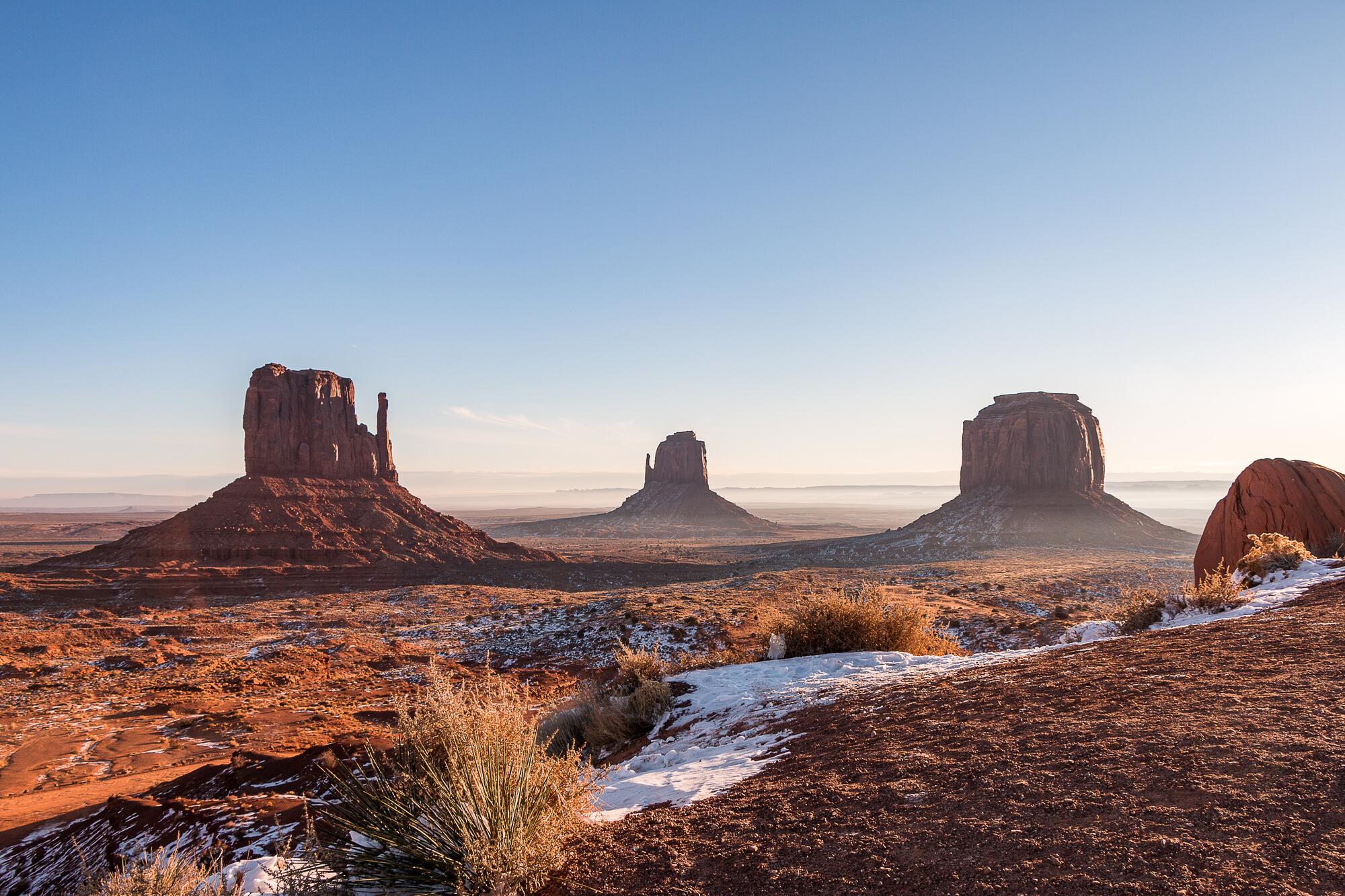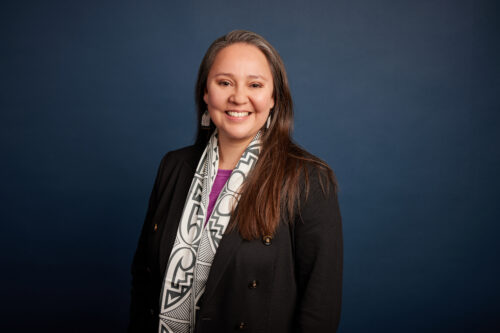
Randall Akee
Director, Project on Indigenous Governance and Development and Julie Johnson Kidd Professor of Indigenous Governance and Development
Working to understand and foster the conditions for sustained, self-determined social and economic development among American Indian nations.
After decades of being shut out from resources that help communities achieve flourishing economies, societies, and educational opportunities, Native Nations are now undergoing a remarkable renaissance.
This resurgence is powered by a movement to exercise rights to self-determination on matters like government structure, natural resource management, economic development, health care, and social service provision.
The Project on Indigenous Governance at the Harvard Kennedy School is working alongside these Nations to deepen this movement by equipping Indigenous peoples with the tools they need to govern effectively and to strengthen their economic, social, and cultural fabrics.
Director, Project on Indigenous Governance and Development and Julie Johnson Kidd Professor of Indigenous Governance and Development
Assistant Director, Outreach and Communications, Project on Indigenous Governance and Development
Assistant Director for the Honoring Nations program at the Project on Indigenous Governance and Development
Video
From setting tribal priorities, to building infrastructure, to managing and sustaining projects, the American Rescue Plan Act (ARPA) presents an unprecedented opportunity for the 574 federally recognized tribal nations to use their rights of sovereignty and self-government to strengthen their communities. As the tribes take on the challenges presented by the Act, the Ash Center’s Harvard Project on American Indian Economic Development hosted a series designed to assist tribes, to help tribes learn from each other and from a wide array of guest experts. During this session, the sixth in the series, following a round of discussion between the panelists a brief Q+A session was held to maximize the opportunities for audience participation.
This session, titled “Investing in Your Tribes’ Infrastructure” featured:
Video
From setting tribal priorities, to building infrastructure, to managing and sustaining projects, the American Rescue Plan Act (ARPA) presents an unprecedented opportunity for the 574 federally recognized tribal nations to use their rights of sovereignty and self-government to strengthen their communities. As the tribes take on the challenges presented by the Act, the Ash Center’s Harvard Project on American Indian Economic Development hosted a series designed to assist tribes, to help tribes learn from each other and from a wide array of guest experts. During this session, the fifth in the series, following a round of discussion between the panelists a brief Q+A session was held to maximize the opportunities for audience participation.
This session, titled “Investing In Your Tribes’ Behavioral Health” featured:
Policy Brief
Video
From setting tribal priorities, to building infrastructure, to managing and sustaining projects, the American Rescue Plan Act (ARPA) presents an unprecedented opportunity for the 574 federally recognized tribal nations to use their rights of sovereignty and self-government to strengthen their communities. As the tribes take on the challenges presented by the Act, the Ash Center’s Harvard Project on American Indian Economic Development hosted a series designed to assist tribes, to help tribes learn from each other and from a wide array of guest experts.
Where do you want to see your nation in 100 years? What decisions in the short and long term will help you achieve this vision? In this session, the fourth in the series, we looked at strategic decision making and the value of long-term planning, investing in human capital, data collection, and how incremental implementation can strengthen your tribe into the future. Each panelist presentation was followed by a brief Q+A session to maximize the opportunities for audience participation.
This session, titled “Strategic Planning and Implementation – How to Pick the Winners and Help Your Tribe” featured:
Video
From setting tribal priorities, to building infrastructure, to managing and sustaining projects, the American Rescue Plan Act (ARPA) presents an unprecedented opportunity for the 574 federally recognized tribal nations to use their rights of sovereignty and self-government to strengthen their communities. As the tribes take on the challenges presented by the Act, the Ash Center’s Harvard Project on American Indian Economic Development hosted a series designed to assist tribes, to help tribes learn from each other and from a wide array of guest experts.
During this discussion, the third in the series, each panelist presentation was followed by a brief Q+A session to maximize the opportunities for audience participation.
This session is titled “A Conversation with Bryan Newland – How Tribes Can Maximize their American Rescue Plan Opportunities” and featured:
Video
The American Rescue Plan Act (ARPA) provides the largest single infusion of federal funding into Indian Country in the history of the United States. More than $32 billion is directed toward assisting American Indian nations and communities as they work to end and recover from the devastating COVID-19 pandemic – which was made worse in Indian Country precisely because such funding has been so long overdue.
From setting tribal priorities, to building infrastructure, to managing and sustaining projects, ARPA presents an unprecedented opportunity for the 574 federally recognized tribal nations to use their rights of sovereignty and self-government to strengthen their communities. As the tribes take on the challenges presented by the Act, the Ash Center’s Harvard Project on American Indian Economic Development presented a series designed to assist tribes, to help tribes learn from each other and from a wide array of guest experts.
This second session, titled “Where Other ARPA Monies Live — How to Avoid Tribes Leaving $12 Billion on the Table” featured a range of experts including:
Media Release
Video
The American Rescue Plan Act (ARPA) provides the largest single infusion of federal funding into Indian Country in the history of the United States. More than $32 billion is directed toward assisting American Indian nations and communities as they work to end and recover from the devastating COVID-19 pandemic – which was made worse in Indian Country precisely because such funding has been so long overdue.
From setting tribal priorities, to building infrastructure, to managing and sustaining projects, ARPA presents an unprecedented opportunity for the 574 federally recognized tribal nations to use their rights of sovereignty and self-government to strengthen their communities. As the tribes take on the challenges presented by the Act, the Ash Center’s Harvard Project on American Indian Economic Development presented a series designed to assist tribes, to help tribes learn from each other and from a wide array of guest experts.
This first session, titled “How Tribal Governments Can and Can’t use ARPA” featured:
Feature
Harvard Project on American Indian Economic Development’s Megan Minoka Hill explains how the American Rescue Plan could bring long-needed aid to Indian Country.
Feature
From the Andes to Washington, D.C., David Cotacachi has spent his life advocating for Indigenous rights and lands.
Media Release
Media Release
Policy Brief
Policy Brief
Video
Like governments around the world, America’s 574 federally recognized tribal nations were racing to protect their citizens from the coronavirus. Impacting tribes at a rate four times higher than the US population, the pandemic was testing the limits of tribal public health infrastructures.



